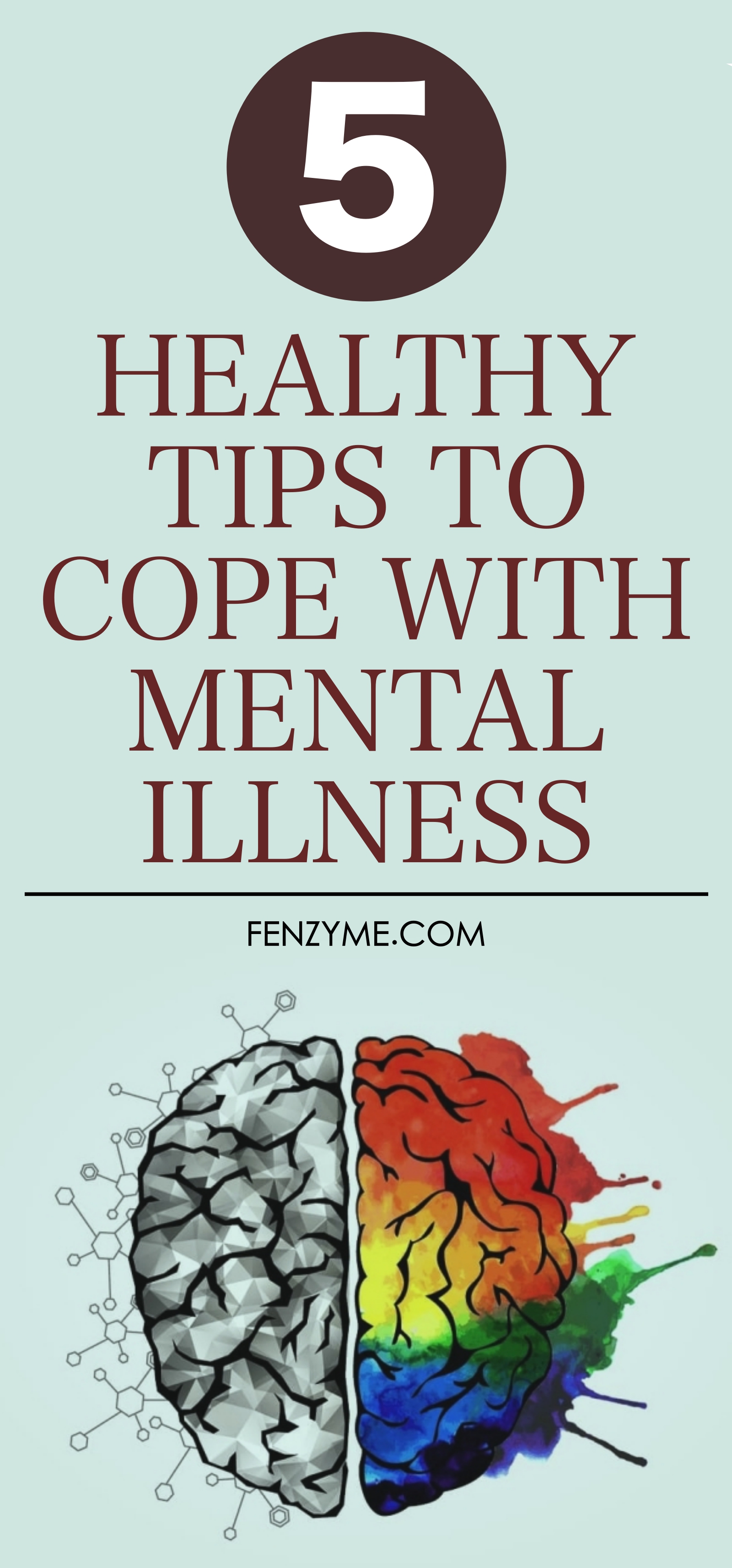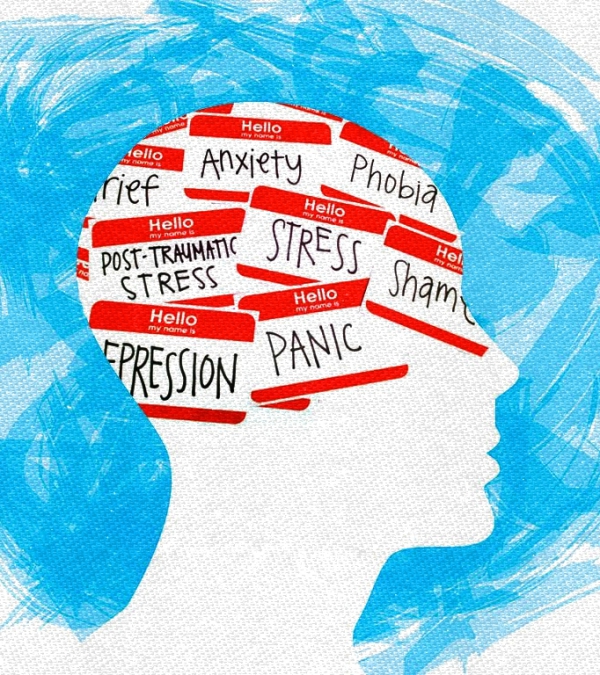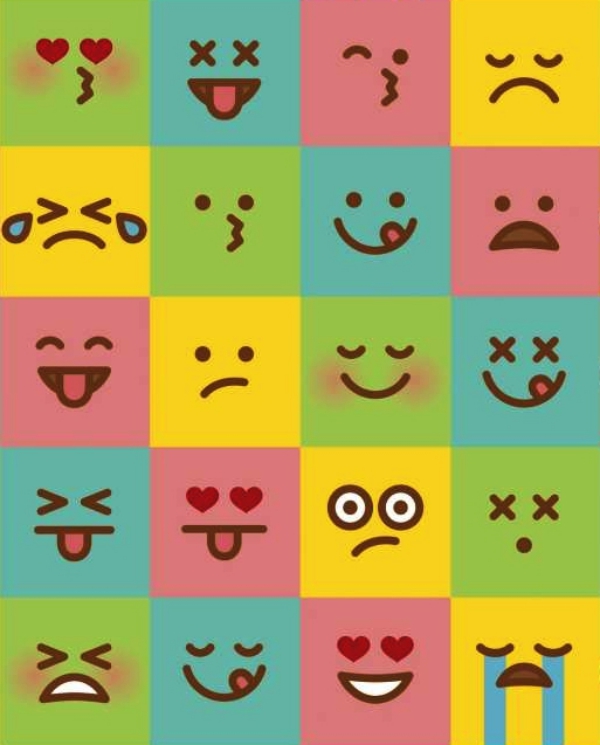A Better Version of You: 5 Healthy Tips to Cope with Mental Illness
We live in a day and age where mental illness is receiving more attention than ever before. In years past, mental illness was largely regarded as a symptom of weak-minded individuals who just couldn’t hack it in life. People suffering from mental illness were given essentially two options – toughen up or go to an asylum where you’re not a burden on anyone else.

Thank goodness we’ve moved past that point. Today, mental illness is treated as both a very real and very treatable disease. There’s a growing body of research that’s helping us understand these ailments, more medical professionals who devote their lives to treating mental illness, and more resources for the afflicted.
Healthy Tips to Cope with Mental Illness
If you’re struggling with mental illness, the first thing that you need to understand is that you’re not broken. Your situation is very similar to people suffering from diabetes, cancer, or any other disease. You can treat and overcome your affliction just like they do, and the following tips will help you cope with your daily struggles against mental illness.
Accept That You Have an Illness, and That’s Okay
Before you can develop any coping mechanisms that work for you, it’s crucial that you accept the fact that you have an illness. It may get better over time, and you may not have it forever, but for now, that is your life.

The act of accepting your disorder can actually feel very liberating. Society might tell you that if there’s nothing wrong with you, then you should do everything and live the same way everyone else does. When you’re operating under that pressure, the strain of trying to be like everyone else can leave you feeling completely overwhelmed, making your condition worse.
Accepting that you have a mental illness is the first key step because you’re giving yourself permission to make some adjustments. You can then adjust your lifestyle to what works best for you.
Develop a Creative Outlet to Express Your Emotions

One of the worst things that people suffering from a mental disorder can do is keep their emotions bottled up. Sadly, that’s exactly what around 60% of afflicted people do. Even if you’re not seeking regular medical help (which you should be), you at least need a way to express the emotions that you’re feeling. Having a creative outlet is an excellent way to do that.
Finding the Right Outlet for You
When people say “creative outlet,” they typically mean drawing, painting, writing, or playing an instrument. Those are all wonderful pursuits, but not everyone is good at art or even enjoys it. When I say creative outlet, what I mean is twofold: something that allows you to express your emotions and something that gives you a sense of relief. Some examples of non-artistic, but still creative, pursuits you can try include:
- Woodcarving
- Auto-detailing
- Cooking
- Landscaping

Notice, I didn’t say that it necessarily makes you feel happy. You should enjoy what you’re making but the main goal is to get your emotions out in the open. That may be painful for you initially. However, as you become comfortable expressing your feelings through your creations, you’ll find that you feel unburdened. Once you’ve gotten to a place where you can channel your emotions, positive or negative, into a creative medium, happiness will naturally follow
Actively Work Against Your Emotions
One of the biggest challenges that people with mental disorders face is understanding that the world isn’t how they see it. Their emotions are skewed as a result of their illness. This means that they are far more susceptible to mood swings, bouts of depression, or temptations to inflict self-harm than other people. If you’re suffering from mental illness, one thing you have to do is learn to act counter to what your emotions are telling you to do.

For example – if your emotions are telling you to isolate yourself from everyone, seek out a trusted friend instead. If your emotions are suggesting that you’re not good at anything, actively work on your creative outlet. If your emotions are saying that you’re a worthless individual, take a moment to look in the mirror and tell yourself that you’re an exceptional human being.
It might sound crazy on the surface, but by actively resisting the impulses your emotions are encouraging, you can learn to see past them. That will help you see your world and your life for the way they really are.
Change Your Environment
If you’ve tried every coping mechanism listed here, have been evaluated by mental health professionals, and still find yourself miserable, then maybe the problem isn’t you. As I suggested above – your mental illness means that your needs may be different than anyone else’s. That might also mean that the environment you’re currently in isn’t the best one to give you what you need.

A perfect example is your work environment. Stress is a part of any job. It’s not a good idea to up and quit just because there are challenges. However, if all the work you do leaves you depressed, or you’re constantly being pressured to meet standards that you just can’t, it may be time to go. It doesn’t matter if you’re an artist, teacher, lawyer, or doctor. If your work environment isn’t conducive to your health, it’s time to explore other options.
You should apply this same line of thinking to all of the environments you live in. Your apartment, your social circle, your family – all are environments that will either work for or against your condition. Don’t be afraid to make some changes in your life if you need to.





